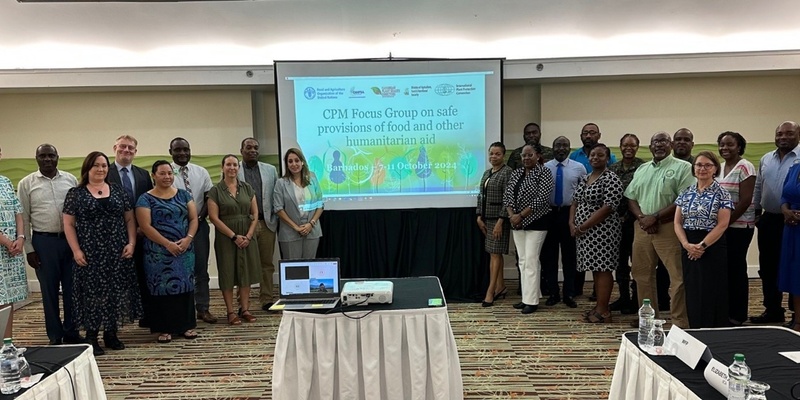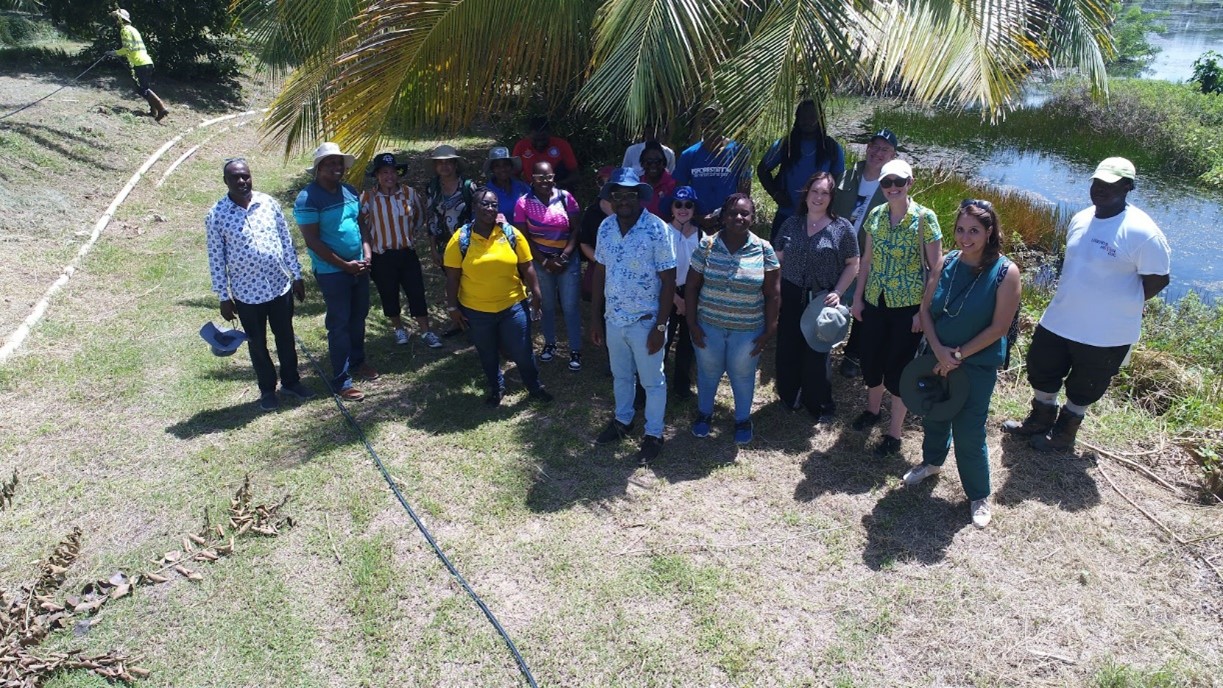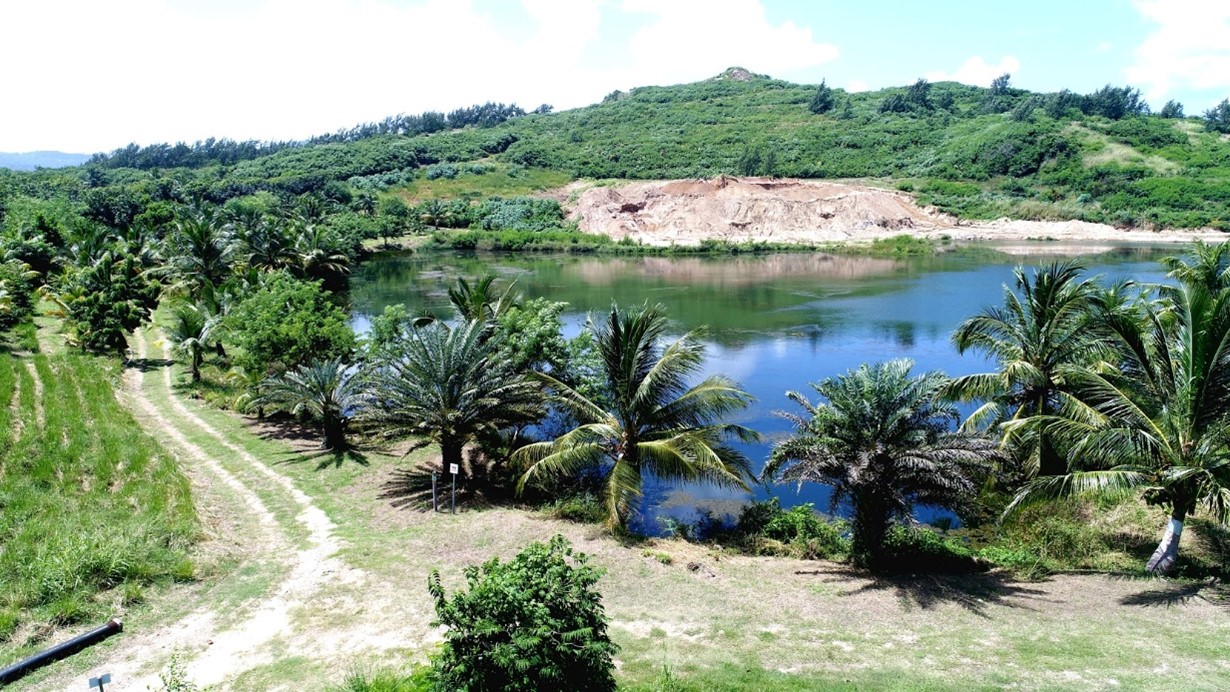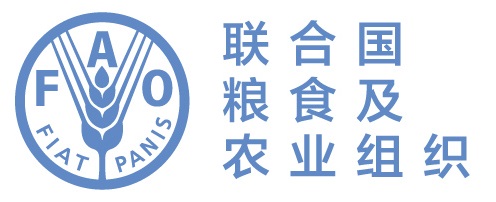植检委安全提供粮食与其他人道主义援助物资焦点小组会议在巴巴多斯闭幕
Posted on Tue, 22 Oct 2024, 13:33

© Adriana G. MOREIRA - IPPC 植检委安全提供粮食与其他人道主义援助物资焦点小组会议于2024年10月在巴巴多斯布里奇敦举行。
布里奇敦,2024年10月15日。植检委安全提供粮食与其他人道主义援助物资焦点小组(下称“焦点小组”)会议在巴巴多斯布里奇敦闭幕,此次为第十八届植检委会议(CPM-18)以来焦点小组举行的首次线下会议。此次会议由国际植物保护公约(下称“IPPC”)秘书处组织,并得到了加勒比植物健康主任论坛(CPHD)、加勒比农业健康与食品安全局(CAHFSA)以及巴巴多斯国家植物保护组织(NPPO)的支持。各利益攸关方共聚一堂,一同应对人道主义援助中涉及的植物检疫风险问题。
基于CPM-18大会成果
此次会议是在CPM-18大会决定将焦点小组的授权延长至2026年之后召开的,这反映出国际社会普遍认同,人道主义援助中存在的植物有害生物风险问题亟待解决。正如讨论中所强调的,人道主义援助可能会在无意中引入有害生物,从而对农业、环境和当地经济产生长期影响。授权延长使该小组能够继续制定关键指南和植物检疫措施国际标准(下称“ISPM标准”),以确保援助物资不会危及脆弱地区的植物健康。
巴巴多斯国防军、巴巴多斯应急管理部、联合国粮农组织加勒比次区域办公室、加勒比植物健康主任论坛(CPHD)加勒比灾害应对技术工作组以及美洲农业合作研究所(IICA)也派代表参加了会议。
焦点小组新任主席Nelson Laville(多米尼加联邦)对在这一关键领域继续开展国际合作表示感谢:“近年来,加勒比地区受自然灾害影响严重。2017年,飓风玛丽亚对多米尼加造成了灾难性破坏,估计损失达13.7亿美元。作为加勒比植物健康主任论坛(CPHD)主席,我想说,通过我地区区域植物保护组织(RPPO)——加勒比农业健康与食品安全局(CAHFSA),我们深知我地区面对自然灾害脆弱不堪,也因此需要定期的人道主义援助。救灾工作虽然对拯救生命至关重要,但也可能在无意中引入入侵性有害生物,对经济、环境和社会造成长期影响。我地区区域植物保护组织(RPPO)——加勒比农业健康与食品安全局(CAHFSA)认识到了这一点,因而大力支持制定这一重要的ISPM标准,以有效减轻上述风险。”
关键讨论和成果
在整个会议期间,焦点小组致力于处理IPPC社区对潜在ISPM草案规范的评议意见,该草案为管理人道主义援助中植物有害生物风险提供了指南。该草案目前正在起草,并将于2025年CPM-19大会上公布。
巴巴多斯国家植物保护组织(NPPO)副首席农业官Michael James表示:“农业、食品和营养服务部赞扬焦点小组在处理这一重要且敏感的话题方面所做的辛勤努力。本部全力支持该拟议标准,认可其适用范围及初衷,因为它对像我们这样的加勒比地区国家具有重要影响。这些国家不仅容易受到各类自然灾害的影响,而且其热带的气候环境和丰富的生物多样性都容易导致有害生物扎根,这些有害生物可能会在不经意间随人道主义援助传播。减少此类事件的风险与在紧急情况发生后提供必要的援助同等重要。”此外,小组还为计划于2025年初举办的网络研讨会制定了一份概念说明文件,以让更多人意识到人道主义援助带来的植物检疫挑战,并促进国际各方基于已通过的植检委《第R-09号建议》共同应对上述风险。此外,会上还分享了人道主义援助导致有害生物引入的具体案例研究,以协助制定未来的预防策略。
鉴于加勒比地区面对自然灾害的高度脆弱性,与会方还集中讨论了如何加强区域和国家应急响应机制,以建立具有韧性的植物检疫系统,并在危机期间预防有害生物的引入。
焦点小组副主席Sophie Peterson也在会上强调了合作的重要性。她表示:“通过集体努力和共同愿景,我们为未来的ISPM标准奠定了基础。该标准不仅能够满足紧急的人道主义需求,还将促进可持续的植物健康实践。”
除了正在进行的ISPM标准相关工作外,小组还在准备公众沟通和宣传材料,以教育各利益攸关方,并提高国际社会对这一问题的认识。焦点小组的最终目标是与世界动物卫生组织(WOAH)、食品法典委员会(CODEX)、世界粮食计划署(WFP)和联合国粮农组织等国际组织建立强大的网络。现阶段,焦点小组将制定一项行动计划,以在未来的紧急救援行动中指导预防有害生物传播的相关工作。IPPC标准制定组副主任Adriana G. Moreira在会上强调,国际社会共同努力至关重要,将有助于相关工作取得切实进展。她对未来持乐观态度,并表示:“随着我们向前迈进,我相信我们的集体努力将继续推动积极变革,并为世界各地脆弱人群的生活带来改变。”
实地考察Walkers保护区
与会者在会议期间参观了巴巴多斯备受推崇的沙矿修复地——Walkers保护区。此次实地考察为各方提供了深入了解生态修复成效的宝贵机会。通过实地走访,与会代表见证了创新生态保护举措在恢复受环境退化影响生态系统方面取得的显著成果。相关举措极大促进了周边社区居民的福祉。


© 巴巴多斯国家植物保护组织(NPPO)和巴巴多斯国防军 - IPPC 植检委安全提供粮食与其他人道主义援助物资焦点小组在巴巴多斯布里奇敦Walkers保护区实地考察。
相关信息:
[博客: 植物健康标准以及食品与人道主义援助物资安全运输][3]

